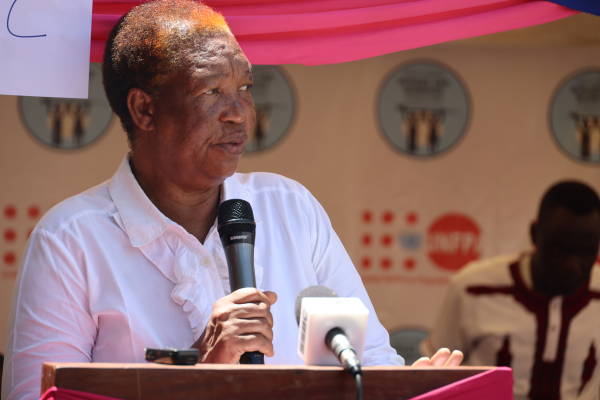At the tender age of 11, Irene Kije experienced an event that would shape her future aspirations. She watched in shock and worry as her elder sister gave birth at home in their remote South Sudanese village.
"During that moment I entered the room and gazed at her; I feared for her life as I had no idea about the birthing process, " the now 23-year-old recalls. Fortunately, a midwife soon arrived and safely delivered the baby. "I was amazed, and I immediately aspired to be someone who can rescue lives in such situations."

This significant moment motivated Kije to dream of becoming a healthcare professional. Following her high school graduation, she joined Juba College of Nursing and Midwifery to pursue a diploma. Her educational path was filled with obstacles, such as school closures caused by the Covid-19 pandemic leading to a delayed graduation in 2024.
This year, Irene was part of a group of 66 nurses and midwives who completed their studies—the set of self-funded students after tuition fees were implemented.
She has since gone on to be employed as a midwife. “I am excited because I’m out here helping people and saving lives,” Kije expresses with enthusiasm, on this year’s International Day of the Midwife, which is globally celebrated on May 5, but was marked in South Sudan on May 12.
When South Sudan gained independence in 2011, it inherited a severely underdeveloped healthcare system ravaged by decades of war. Today South Sudan continues to deal with health issues, such as high rates of infectious diseases and concerning levels of maternal and child mortality. World Health Organization recorded maternal mortality at 1,223 per 100,000 live births in 2020, which is mainly attributed to limited access to healthcare services.
The challenges are compounded by a shortage of healthcare professionals and insufficient government funding. For the 2023-2024 fiscal year budget, only 2% of the national budget was directed towards the health sector, which falls short of meeting the increasing healthcare needs of the population.
In 2018, the Norwegian government through the Embassy in Juba started funding projects through the United Nations Population Fund (UNFPA) to improve health indicators of South Sudan. This support, also cojoined by Sweden and Canada—aims to advance reproductive health and rights in South Sudan while improving access to reproductive and maternal health services, for South Sudanese youth, including displaced and host communities.
Through this partnership, Juba College of Nursing and Midwifery has received assistance from UNFPA.
Reverend Janet Michael, who serves as the Director General for Nursing and Midwifery at South Sudan’s Ministry of Health expressed her appreciation for this support. She highlighted the impact of this aid in boosting the healthcare workforce in the country with some individuals working at Juba Teaching Hospital.

“We have more obstetric gynaecologists, more midwives, and I want to thank you,” she said during a joint donor visit to Juba Teaching Hospital, the nation’s main referral hospital.
“The number of nurses has increased because of the training of nurses and midwives,” Rev. Janet said.
